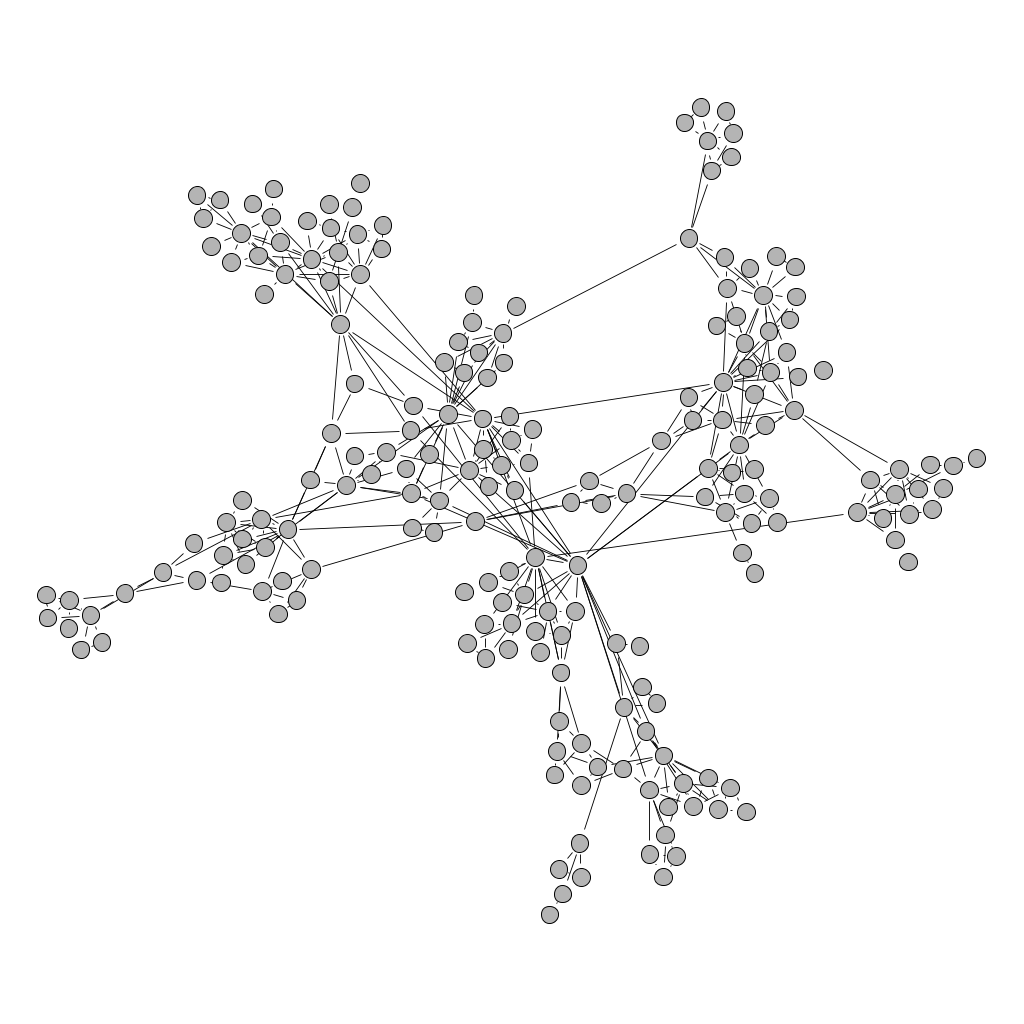Experiments and Models of Social Networks: Cooperation, Conflict and Trust
Interdisciplinary Symposium 12-13 May 2016
Info about event
Time
Location
Videnskabernes Selskab, Copenhagen
Organizer

DATES: May 12-13th 2016.
PLACE: Videnskabernes Selskab, H.C. Andersens Boulevard 35, 3. sal, 1535 København V, Denmark.
Human society is organized within social networks. The structure and dynamics of these networks are now rapidly changing in the light of technological advance and the ability to link people across the world. In the cross field of physics, evolutionary biology and cognitive sciences models and experiments are emerging that can help understand the dynamical and structural features of social interaction including social networks. With growing virtual networks (e.g. electronic mail and online social networks), cooperative behavior, such as postponing benefit in altruistic acts, trust/trustworthiness and avoiding the tragedy of the commons are currently on the agenda as basic research topics in socio-physics and evolutionary theory as well as experimental economics, experimental psychology and cognitive sciences in general. The public’s participation in social networks is becoming increasingly measureable because most information in digitized and stored. Simultaneously, the public’s participation and interest in such networks currently grow strongly. This opens a new and quantitative research perspective in social networks, with results that can be applied to better design of organizational structure and understanding of the decisions individuals face when they live in such networks:
On this background we wish to bring together pioneering researchers from the social and natural sciences in a symposium dealing with both the theoretical and experimental aspects of systems of social interaction. The Royal Danish Academy of Sciences and Letters seems an ideal place to make a meeting point with scholars of the different disciplines
We pose the following overarching questions:
- How can cooperation be facilitated in dynamical social networks?
- What are key trust-building mechanisms in virtual networks, e.g. communication networks?
- Can super-imposed structure facilitate or hamper trust building and prevent conflict?
Please register here
*****
Abstracts here
*****
Program
Thursday 12th May
1st theme: Evolutionary and hierarchical aspects of Conflict and Cooperation
9.00 – 9.15 Introduction by organizers.
9.15 – 10.00 Social knowledge underlying conflict decisions and assessment of rivals
Elizabeth Hobson, University of Tennessee, USA
10.00 – 10.45 Christina Pawlowitsch, Université de Paris 2, France
Coffee
11.15 – 12.00 Modelling cooperation and punishment in public goods games
Arne Traulsen, Max Planck Institute, Plön, Germany
Lunch
2nd theme: Interactions and Structural issues of Cooperation, Conflict and trust
13.30 -14.15 Stefan Bornholdt, University of Bremen, Germany
14.15 – 15.00 Between-group conflict and cooperation in the common-pool resource experiment
Karolina Safarzynska, University of Warsaw, Poland
Coffee
15.30 -16.15 Simon Dedeo, Santa Fe Institute / Indiana University Bloomington, USA
16.15 – 17.00 Open discussion/Poster session ?
Friday 13th May
3rd theme: Networks interactions (including themes 1 and 2)
9.15 – 10.00 The Dynamics of Disagreement
Milena Tsvetkova, Oxford Internet Institute, UK
10.00 – 10.45 Linking Individual and Collective Behavior in Adaptive Social Networks
Jorge Pacheco, University of Minho, Lisboa, Portugal
Coffee
11.15 – 12.00 Under Pressure: How Job Pressures Influence Workplace Network Dynamics
Christian Waldstrøm, Aarhus University, Denmark
Lunch
4th theme: Network interactions (including themes 1 and 2) and Synthesis followed by open discussion.
13.30 - 14.15 The fundamental structures of dynamic social networks
Sune Lehmann, Danish Technical University / Copenhagen University
14.15 - 15.15 Open discussion of implications and future directions and challenges.
Contact Information: Lars Bach, lbach@cas.au.dk
